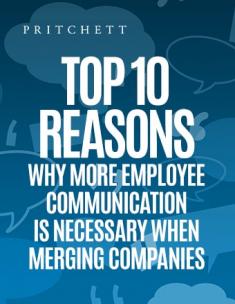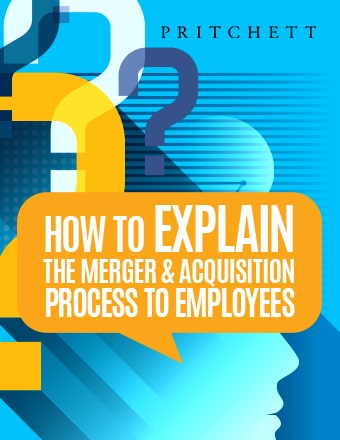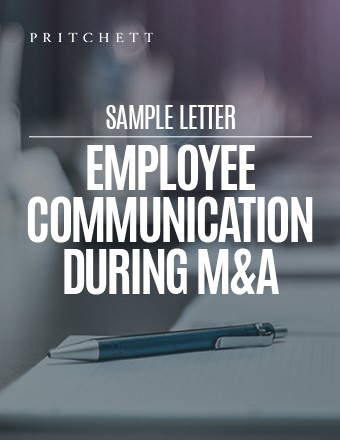Acquisitions create an insatiable demand for communication and connection. Here are ten reasons why:
- More questions than answers. Acquisitions create a lot of unknowns. Energy focuses on “what’s going to happen to me.” People begin to ask questions you couldn’t answer even in stable times. And of course, everything that goes wrong gets blamed on the deal.
- Rumor mill cranks at E-speed. The rumor mill causes a lot of information warp. There are many unreliable messages floating around that need to be identified and cleared up. Electronic communication channels move messages faster and farther. Leaders can’t wait a week to respond.
- The truth is a moving target. The “truth” keeps changing and is often dead on arrival. Decisions are made, announced, and then promptly changed. People can’t keep up with what’s happening. Acquisitions are a fast-breaking story.
- New and different information routes. The two companies that are joining together commonly have different ways of communicating—different styles, different vocabularies. This often leads to confusion and misunderstanding. Information often has to travel further, following new and different routes. That takes time—sometimes more time than management can afford.
- Confusion over whom to include. It may be unclear exactly who needs to be included in the information loop. It’s easy for messages to get lost or miss key people.
- Skepticism and lack of trust. Some people are afraid to communicate openly and honestly. Important messages may never be sent, or they may be so watered down they are not taken seriously by others. People are more skeptical and mistrusting in the merger/integration environment. It takes more of a communication effort to convince them of most things.
- Desire for more information and better answers. People are troubled by the uncertainty. They desire more information and better answers than usual.
- Less willing to commit to decisions. Managers become more wary and guarded—less willing to commit themselves, make decisions, or communicate freely out of fear of ending up with egg on their faces.
- More is happening. More things of significance are occurring simultaneously. There simply is more news, more change, more to be communicated.
- Messages get “slicked up.” First announcements put heavy emphasis on the combination’s appealing aspects. The risk here is overpromising. It’s better to talk straight and underpromise. If you must make promises, promise change.





